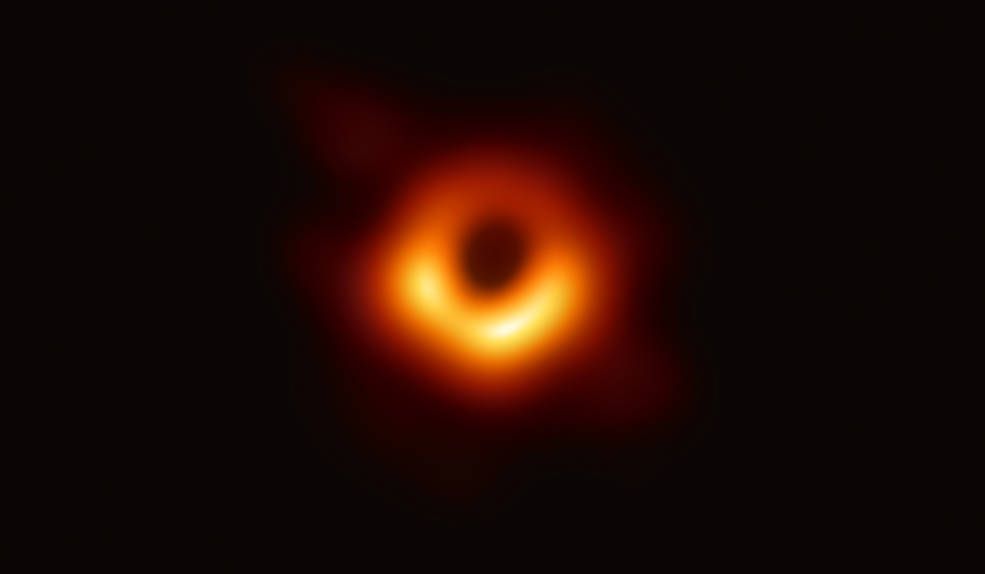Ultramassive black hole discovered through a new method
Scientists have been working on an astronomy technique called “gravitational lensing.”

A few minutes every morning is all you need.
Stay up to date on the world's Headlines and Human Stories. It's fun, it's factual, it's fluff-free.
The backstory: Scientists have been working on an astronomy technique called “gravitational lensing,” which uses a galaxy as a kind of magnifying glass to see how light would bend from other objects in space. This allows them to see objects that would’ve been hard to find, like inactive black holes. Usually, scientists can find black holes by detecting the light and radiation given off when matter is pulled in by one, forcing it to heat up and release energy. But inactive black holes don’t really do that, so they’ve been hard to spot if they’re really far out there in space. But, their gravitational pull can still bend light, and scientists can look at how the light is bent to find and measure them.
The development: A study done at the University of Durham and published by the Royal Astronomical Society shows the first black hole detected by gravitational lensing. This isn’t just any black hole, either; it’s an “ultramassive” black hole. It’s 30 billion times the size of our sun and 33 billion times the mass. So, pretty big. In fact, this is one of the biggest black holes ever found by astronomers. Astronomers currently believe that black holes have a theoretical size limit of 40 billion times the size of the sun, so this is definitely up there.
Key comments:
"This particular black hole, which is roughly 30 billion times the mass of our Sun, is one of the biggest ever detected and on the upper limit of how large we believe black holes can theoretically become, so it is an extremely exciting discovery," said lead study author Dr James Nightingale, an observational cosmologist at Durham University.
"This approach could let us detect many more black holes beyond our local universe and reveal how these exotic objects evolved further back in cosmic time," Nightingale said.




Comments ()